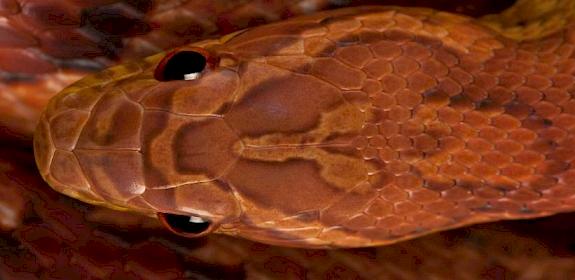Traditional medicine industry strengthens commitment to protect endangered species
Beijing, China, 19th June 2013—Representatives from the traditional Chinese medicine (TCM) and traditional Tibetan medicine (TTM) industry met last week in Beijing to discuss how they can help further protect species with a high medicinal value and to reaffirm their commitment not to use parts from Tigers and other endangered animals.
They were joined by academic institutions and conservation organizations at a symposium on Endangered Species Conservation and Sustainable Development of TCM jointly hosted by TRAFFIC, the China Wildlife Conservation Association (CWCA) and the World Federation of Chinese Medicine Societies (WFCMS).
More than 20 participants included representatives from key players in the traditional medicine sector, such as the China National Corporation of Traditional & Herbal Medicine, the TCM Research Group of Chinese Academy of Social Sciences, the Beijing University of Chinese Medicine, the Pan European Federation of TCM Societies, the Association of TCM in the Netherlands and the Beijing Tibetan Medicine Hospital.
Following a lively debate, participants unanimously agreed that sustainable development of traditional medicine cannot be achieved without sustainable use of wild resources, based upon existing relevant international and domestic legislation, such as the ban on Tiger parts.
“With the TCM-TTM industry booming internationally, the demand for ingredients is surging,” said Jianyin Huang, undersecretary of the WFCMS. “It is essential sustainable development of the industry goes hand in hand with endangered species conservation to develop a win-win relationship.”
According to Zhilin Dong, President of the Pan European Federation of TCM Societies: “Being seen to ensure strict compliance with international conventions regarding the use of endangered species will improve the TCM-TTM industry’s image and help foster its further expansion into international markets.”
Wildlife conservation experts noted their concern over the surging demand for TCM-TMM ingredients and called for more collaboration with medicinal practitioners.
“The huge demand created by the TCM-TTM market for wildlife resources must be carefully managed, as it is potentially very difficult to control the enormous impact it could have on natural resources,” said Professor Yanling Song from the Institute of Zoology, Chinese Academy of Sciences.
“It is vital for the traditional medicine sector to collaborate with conservationists and raise awareness of the need to eliminate the unnecessary demand for medicinal ingredients derived from species protected by international Conventions and domestic laws,” added Feng Yin, CWCA’s Division Director.
The practitioners also recognized their role in highlighting the scientific basis for traditional medicine treatments.
“We need to educate the public that ingredients such as Tiger bones and even Tiger bone substitutes have no place in updated traditional medicine practices and that people aren’t just prescribed medicines containing such ingredients out of curiosity or because of some unrealistic treatment expectations,” said Dong.
In 2010, TRAFFIC hosted a similar meeting when representatives from the TCM industry committed not to use parts from Tigers and other endangered species.
“Today, TRAFFIC’s market surveys show there are almost no Tiger bone products visible in physical markets, thanks to the joint effort of all stakeholders including the traditional medicine sector,” said Ling Xu, Senior Programme Officer with TRAFFIC’s China Programme.
“However, medicinal products with ingredients claiming to contain Tiger parts and other endangered species continue to be traded online, and it is vital for us to work together and remain vigilant to counteract this ongoing threat.”



